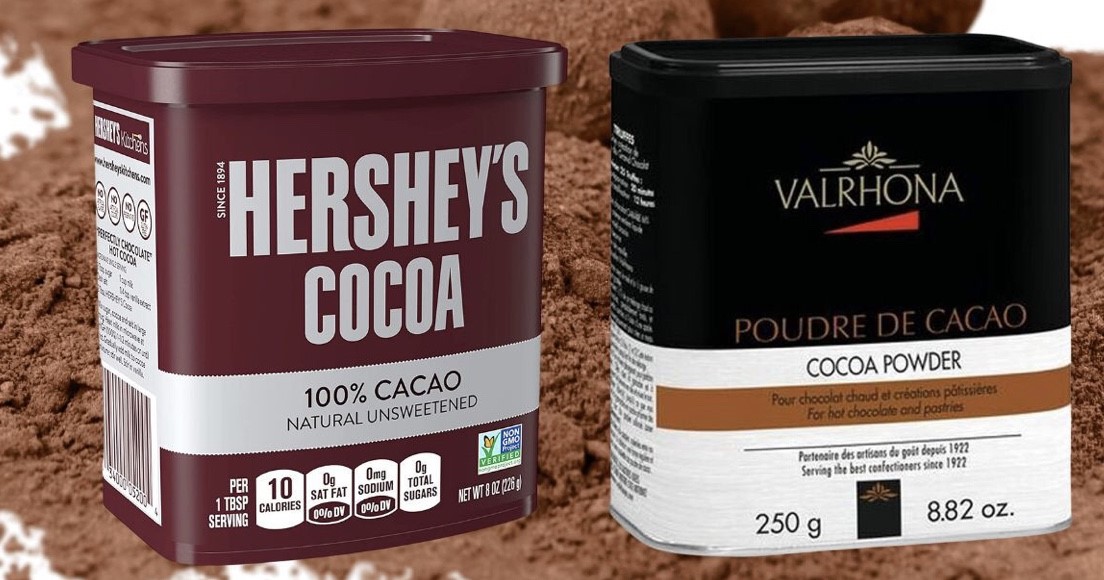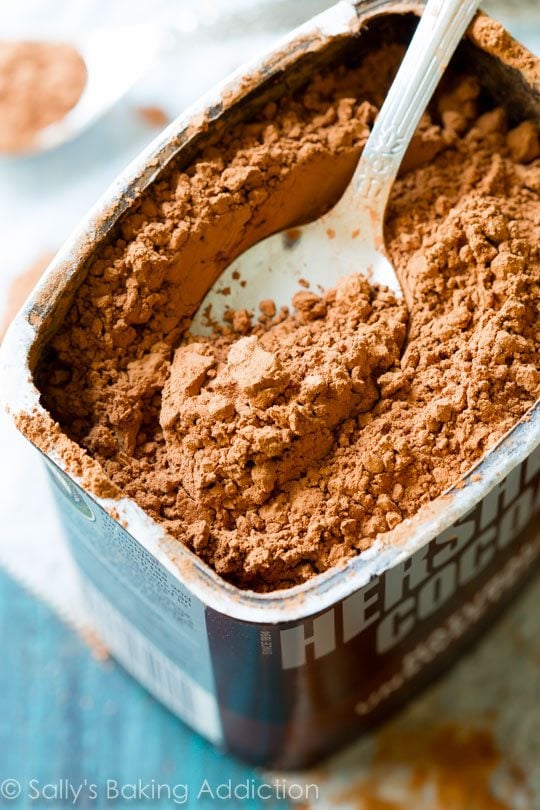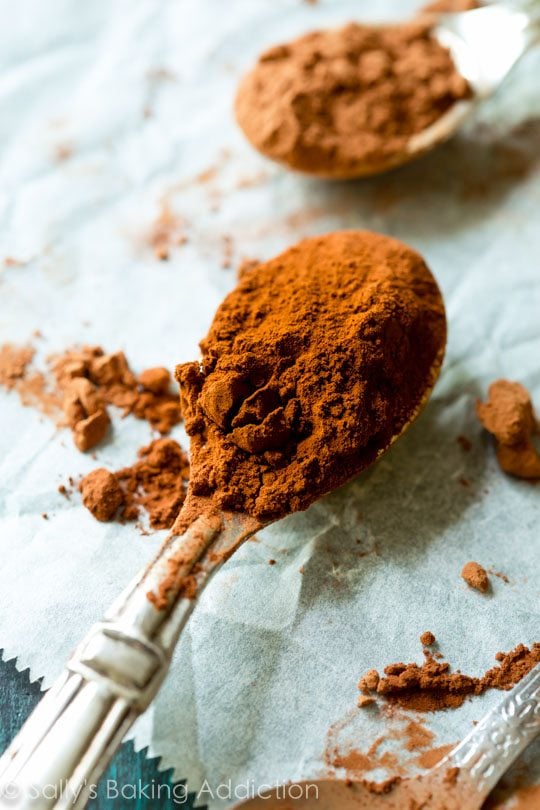Welcome back to my beloved baking basics series where I blab about nerdy baking things. If you’re a curious baker like I am, grab a cup of coffee with me and stick around! Especially if you like chocolate.
Today I’m demystifying the difference between dutch-process and natural cocoa powder. Like the baking powder vs. baking soda head-scratcher, the difference between these two types of unsweetened cocoa powders is beyond confusing. When I first began, most explanations I saw on the internet left me even more puzzled than when I started reading. So, let me break things down for you in regular terms.
There are two types of unsweetened cocoa powder: dutch-processed and natural. The two have different chemical properties and, therefore, different little jobs in a recipe.
Obviously, it’s best to use whichever cocoa your recipe calls for. But can you substitute natural cocoa for Dutch-process (or vice-versa) in a pinch? Yes, you can obtain decent results simply by substituting one cocoa for another without making any adjustments.

Dutch-Process Cocoa Powder (Alkalized Cocoa)
Dutch-process cocoa powder starts with cocoa beans that have been washed in alkaline solution of potassium carbonate. This wash neutralizes their acidity. So, dutch-process cocoa powder is neutral. Because it is neutral, it does not react with baking soda. It’s often paired with baking powder. (But not always!)
Alkalizing cocoa makes it darker in color, mellow in flavor, and dissolves easily into liquids. Homemade Oreo cookies are made from dutched cocoa! Yum.
Natural cocoa is just that—natural powder from roasted cocoa beans. It’s acidic and bitter, with a very strong and concentrated chocolate flavor. Natural cocoa powder (ACID) is often used in recipes calling for baking soda (BASE) because the two react with each other to allow your baked good to rise. If you live in the US, the cocoa powder you often see in the baking aisle is natural—like Hershey’s (not the Special Dark, the regular) or Ghirardelli. Flavor varies by brand, but you can always find me using either of these two.

What Is Cocoa Powder?
I’m glad you asked! Cocoa powder comes from cocoa beans. Crazy, isn’t it. The beans are fermented, dried, roasted and cracked into nibs. Then, the nibs are pressed to remove 75% of their cocoa butter. This leaves us with chocolate liquor. The pasty liquor is dried and then ground into unsweetened cocoa powder. All done!

Before you read the differences between dutch-process and natural cocoa powder, I encourage you to read my informational post about baking soda vs. baking powder. Understanding the difference between these two will greatly help you make sense of dutch-process vs natural cocoa powder.
Let’s break down each.
Natural Cocoa vs. Dutch Process Cocoa Powder EXPLAINED
FAQ
What happens if use Dutch-process cocoa instead of regular cocoa?
How do I substitute Dutch-process for natural cocoa?
Is Dutch cocoa better for baking?
Is Dutch processed cocoa powder the same as unsweetened cocoa powder?
Can I substitute Dutch Cocoa for natural cocoa powder?
This chocolate cupcake uses Natural cocoa powder. The short answer is that no – you cannot substitute Dutch cocoa for Natural cocoa powder. However, you can substitute cocoa powder in place of Dutch cocoa. Confused? I’ll explain! Dutch cocoa is used with Baking powder and natural cocoa is used with baking soda or both.
What is the best substitute of cocoa beans?
A popular substitute for cocoa beans are carob chips, which are less bitter and have a slightly sweet nutty flavor while also being caffeine-free. Carob beans or carob pods can be dried and ground into carob powder, then made into carob chips. Ground coffee beans work well in a pinch for baked items like chocolate cakes and other desserts, and are less expensive than carob. In general, substituting an equal amount of carob powder for cocoa powder is practical. More recently, Brazilian researchers used jackfruit seeds to make flour then they dried and roasted the flour to enhance the flavor and aroma, which is similar to the chocolaty flavor of cocoa beans. If this catches on it could reduce waste from otherwise unused jackfruit seeds and reduce the strain of the cocoa industry.
Can I use Dutch-process cocoa instead of chocolate?
If you want to make pudding, ice cream, chocolate sauce or no-bake cookies, and your recipe calls for Dutch-process cocoa, just swap in an equal amount of natural unsweetened cocoa or carob powder (if you’re avoiding chocolate). The finished product won’t be as darkly-colored or richly-flavored as intended, but it’ll still taste great.
What is the difference between Dutch cocoa and natural cocoa?
Dutch cocoa is used with Baking powder and natural cocoa is used with baking soda or both. Cocoa powder is made when chocolate liquor is pressed to remove three-quarters of its cocoa butter. The remaining cocoa solids are processed to make fine unsweetened cocoa powder. There are two types of unsweetened cocoa powder: natural and Dutch-processed.
